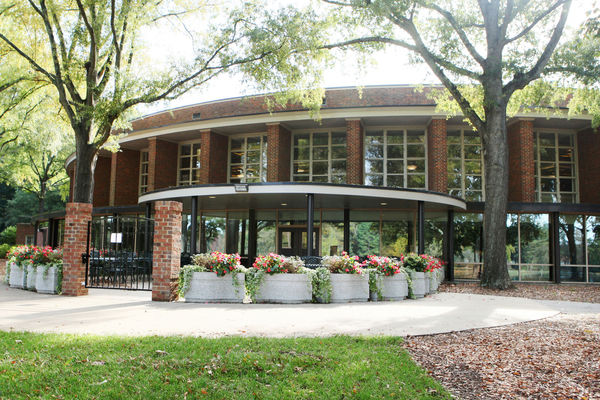Prior to this semester, Furman prioritized campus sustainability. Unfortunately, COVID-19 put an end to Furman’s progressive environmental mentality by abandoning sustainable practices in favor of health and safety. However, this was not a sacrifice they had to make—environmental health and public health do not have to be at odds.
The pandemic has drastically increased campus use of plastic utensils, one-time use plates, bottles, cups and to-go boxes—substitutions that are extremely wasteful and environmentally unfriendly. Not long ago, plastic utensils were a rarity on campus. Only the P-Den, Bread and Bowl, and the occasional dining hall to-go package offered plastic utensils. Now, nowhere on campus is plastic-free. Furman only recycles plastics 1 and 2, and since these plastics are 3 and 4, utensils tossed in the trash are bound for the landfill.
For all that Furman boasts about its capacity for innovation, can it not find a viable solution to this problem? The problem plastic utensils pose surely seems like an easy fix given the immense problems plaguing other aspects of university life. The original cleaning process the dining hall used should have thoroughly cleaned dining ware. To be extra safe, the dining hall could have added an additional cleaning step, which does not seem like an unreasonable request, nor does it seem too complicated to implement. The university’s use of plastic dining ware is a cop-out. In their commitment to safety and health, they should have extended that commitment to the environment.
If communal reusable plates and silverware are absolute no-gos in these unprecedented times, Furman could provide students with personal tupperware bowls and cups. Sure, this plan would require students to do their own dishes, but it would drastically cut down on disposable dining ware on campus. In the welcome bag we all received upon coming to campus were two purple masks—if the university had been more forward thinking, it could also have included a matching tupperware container and cup.
The previously used self-serve drink machines could replace the grab and go fridge where students now get beverages. If students were required to wipe down the handle or button with a sanitation wipe after use, this seems like a safe and environmentally conscious switch. After all, the number of plastic bottles recycled daily would be severely reduced while the Furman community would remain safe.
If students were to bring their own reusable dining ware to the cafeteria it could actually be more safe. It would certainly cut down possible exposure points. Instead of a whole supply line touching the disposal dining ware before it gets to students, students and dining hall staff,who wear gloves, would be the only individuals in close contact with the tupperware.
In short, ensuring social safety does not mean the university cannot be environmentally conscious. Even when COVID-19 has passed, the environment will still need humans to care for it. Environmental health is closely intertwined with human health. Thus, to ensure that the environment is able to take care of us, we need to take care of it. The environment is already at a precipice—we cannot allow COVID-19 to push it off the edge.
